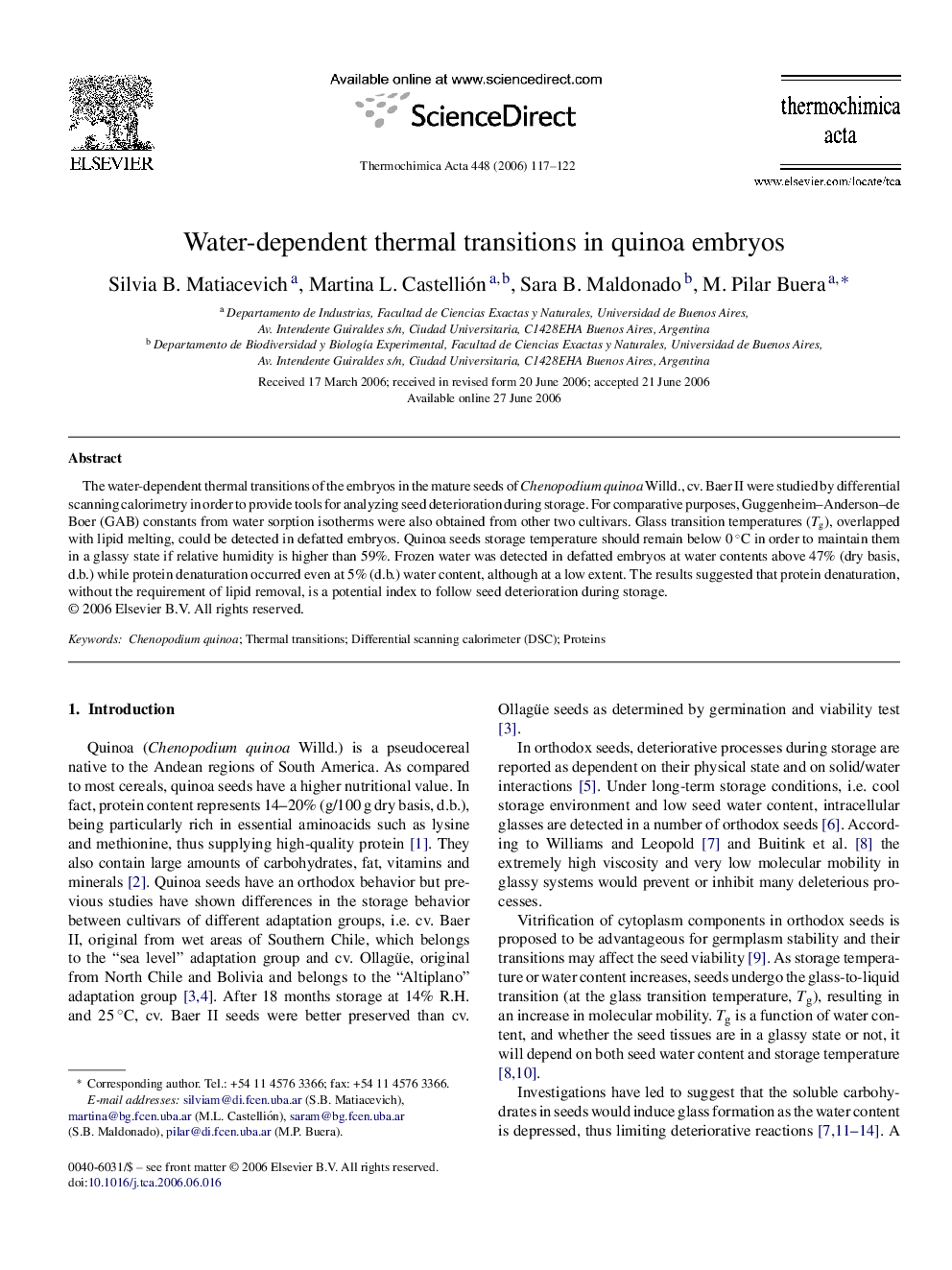| Article ID | Journal | Published Year | Pages | File Type |
|---|---|---|---|---|
| 675879 | Thermochimica Acta | 2006 | 6 Pages |
The water-dependent thermal transitions of the embryos in the mature seeds of Chenopodium quinoa Willd., cv. Baer II were studied by differential scanning calorimetry in order to provide tools for analyzing seed deterioration during storage. For comparative purposes, Guggenheim–Anderson–de Boer (GAB) constants from water sorption isotherms were also obtained from other two cultivars. Glass transition temperatures (Tg), overlapped with lipid melting, could be detected in defatted embryos. Quinoa seeds storage temperature should remain below 0 °C in order to maintain them in a glassy state if relative humidity is higher than 59%. Frozen water was detected in defatted embryos at water contents above 47% (dry basis, d.b.) while protein denaturation occurred even at 5% (d.b.) water content, although at a low extent. The results suggested that protein denaturation, without the requirement of lipid removal, is a potential index to follow seed deterioration during storage.
